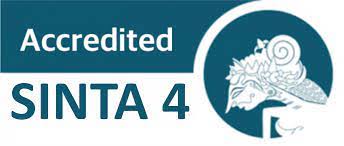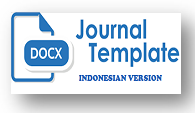Analisis Wilayah Prioritas Pembangunan di Provinsi Jawa Timur Berdasarkan Indikator Sosial Menggunakan Metode K-Means Clustering
DOI:
https://doi.org/10.29240/arcitech.v5i1.13488Keywords:
machine learning, Clustering, K-Means, DevelopmentAbstract
Development is a key indicator of a region's progress; however, regional disparities remain a pressing issue due to uneven distribution of development. This study employs a data mining approach using the K-Means Clustering method. The objective is to classify priority development areas in East Java Province based on various social indicators, including total population, population growth rate, population density, Human Development Index (HDI), unemployment rate, and average years of schooling (AYS). Unlike previous studies, this research adopts a more comprehensive data-driven approach. The results show that K-Means successfully classifies regions into two clusters: priority and non-priority. A Silhouette Score of 0.45 indicates a fairly good level of cluster separation. Most of the regions in the priority cluster are regencies, while the non-priority cluster predominantly consists of urban areas. These findings confirm that K-Means Clustering is an effective decision-support tool for identifying priority development areas through data-based analysis.
Downloads
References
Amalia, A. F., Sadik, J., Azzahra, R. D., & Mubarok, I. T. (2024). Analisis Pengaruh Ketimpangan Pendapatan, Pertumbuhan Ekonomi, dan Jumlah Penduduk Terhadap Kemiskinan di Jawa Timur Tahun 2023. 5(1), 140–151.
Anwar, A. A., Rorong, I. P. F., & Tolosang, K. D. (2023). Analisis Ketimpangan Pembangunan Antar Wilayah Di Kabupaten/Kota Provinsi Sulawesi Utara. Jurnal Berkala Ilmiah Efisiensi, 23(6), 85–96.
Az-Zahra, A., & Wijayanto, A. W. (2024). Tinjauan Kesejahteraan di Daerah Perbatasan Republik Indonesia Tahun 2021: Penerapan Analisis Klaster K-Means dan Hierarki. Jurnal Sistem Dan Teknologi Informasi, 12(1), 55–64. https://doi.org/10.26418/justin.v12i1.69040
Fajrianti, F., Bustan, M. N., & Tiro, M. A. (2019). Penggunaan Analisis Cluster K-Means dan Analisis Diskriminan Dalam Pengelompokan Desa Miskin di Kabupaten Pangkep. VARIANSI: Journal of Statistics and Its Application on Teaching and Research, 1(2), 7. https://doi.org/10.35580/variansiunm9355
Gormley, I. C., Murphy, T. B., & Raftery, A. E. (2023). Model-Based Clustering. In Annual Review of Statistics and Its Application (Vol. 10, pp. 573–595). Annual Reviews Inc. https://doi.org/10.1146/annurev-statistics-033121-115326
Ikotun, A. M., Ezugwu, A. E., Abualigah, L., Abuhaija, B., & Heming, J. (2023). K-means clustering algorithms: A comprehensive review, variants analysis, and advances in the era of big data. Information Sciences, 622, 178–210. https://doi.org/10.1016/j.ins.2022.11.139
Muhammad Fakhrur Rodzi. (2023). Pembangunan Infrastruktur Dan Pemerataan Ekonomi Di Indonesia. Jurnal Masyarakat Dan Desa, 3(2), 151–163. https://doi.org/10.47431/jmd.v3i2.353
Muttaqin, M. F. J., & Zulkarnain. (2020). Cluster Analysis Using K-Means Method to Classify Indonesia Regency/City based on Human Development Index Indicator. ACM International Conference Proceeding Series. https://doi.org/10.1145/3400934.3400951
Nurvia Handayani, N. H. (2024). Pengaruh Ketimpangan Pendapatan, Tingkat Pendidikan dan Kemiskinan Terhadap Pertumbuhan Ekonomi Di Indonesia Nurvia. 4, 112–124.
Oyewole, G. J., & Thopil, G. A. (2023). Data clustering: application and trends. Artificial Intelligence Review, 56(7). https://doi.org/10.1007/s10462-022-10325-y
Rinaldi, M. (2020). Pendidikan sebagai Pilar Kesejahteraan : Menghubungkan Pendidikan dengan Kemajuan Sosial dan Ekonomi. 08(1).
Sandia, I. W. W. K., & Dwidasmara, I. B. G. (2023). Implementasi Algoritma K-Means Clustering dalam Penentuan Klasifikasi Tingkat Pembangunan Perekonomian di Provinsi Bali. Jurnal Nasional Teknologi Dan Aplikasi, 1(2), 761–769.
Sinaga, K. P., & Yang, M. S. (2020). Unsupervised K-means clustering algorithm. IEEE Access, 8, 80716–80727. https://doi.org/10.1109/ACCESS.2020.2988796
Sriwati, E., Setiawati, B., & Tahir, N. (2024). Peran pemerintah daerah dalam pembangunan infrastruktur. Jurnal KIMAP: Kajian Ilmiah Mahasiswa Administrasi Publik, 5(1), 104–116. https://journal.unismuh.ac.id/index.php/kimap/article/view/14058
Sukarno Wijaya, N., Jajuli, M., & Arif Dermawan, B. (2024). Penerapan Algoritma K-Means Clustering Dalam Menentukan Daerah Prioritas Penanganan Kemiskinan Di Wilayah Jawa Timur. JATI (Jurnal Mahasiswa Teknik Informatika), 8(4), 7579–7584. https://doi.org/10.36040/jati.v8i4.10248
Suraya, S., Sholeh, M., & Lestari, U. (2023). Evaluation of Data Clustering Accuracy using K-Means Algorithm. International Journal of Multidisciplinary Approach Research and Science, 2(01). https://doi.org/10.59653/ijmars.v2i01.504
Syed Agung Afandi, Muslim Afandi, R. E. (2022). Pengantar Teori Pembangunan. In N. H. Afandi (Ed.), CV. Bintang Semesta Media (1st ed.). Percetakan Bintang. http://repository.ut.ac.id/4601/
Wulandari, S., & Tulis, R. S. (2022). Prisip Manajemen Dalam Proses Pembagunan Infastruktur Di Kabupaten Katingan ( Studi Di Desa Tumbang Lahang ) Jurnal Administrasi Publik ( JAP ). Jurnal Administrasi Publik (JAP), 8(2), 148–161.
Downloads
Published
How to Cite
Issue
Section
Citation Check
License
Copyright (c) 2025 Gita Rohma Utami Asyafiiyah, Artika Widyastuti, Friska Andriani

This work is licensed under a Creative Commons Attribution-NonCommercial-ShareAlike 4.0 International License.
Authors who publish with Arcitech: Journal of Computer science and Artificial Intelligence agree to the following terms:
- Authors retain copyright and grant the journal right of first publication with the work simultaneously licensed under a Creative Commons Attribution-NonCommercial-ShareAlike 4.0 International License (CC BY-NC-SA 4.0) that allows others to share the work with an acknowledgment of the work's authorship and initial publication in this journal.
- Authors are able to enter into separate, additional contractual arrangements for the non-exclusive distribution of the journal's published version of the work (e.g., post it to an institutional repository or publish it in a book), with an acknowledgment of its initial publication in this journal.
- Authors are permitted and encouraged to post their work online (e.g., in institutional repositories or on their website) prior to and during the submission process, as it can lead to productive exchanges, as well as earlier and greater citation of published work (See The Effect of Open Access).













